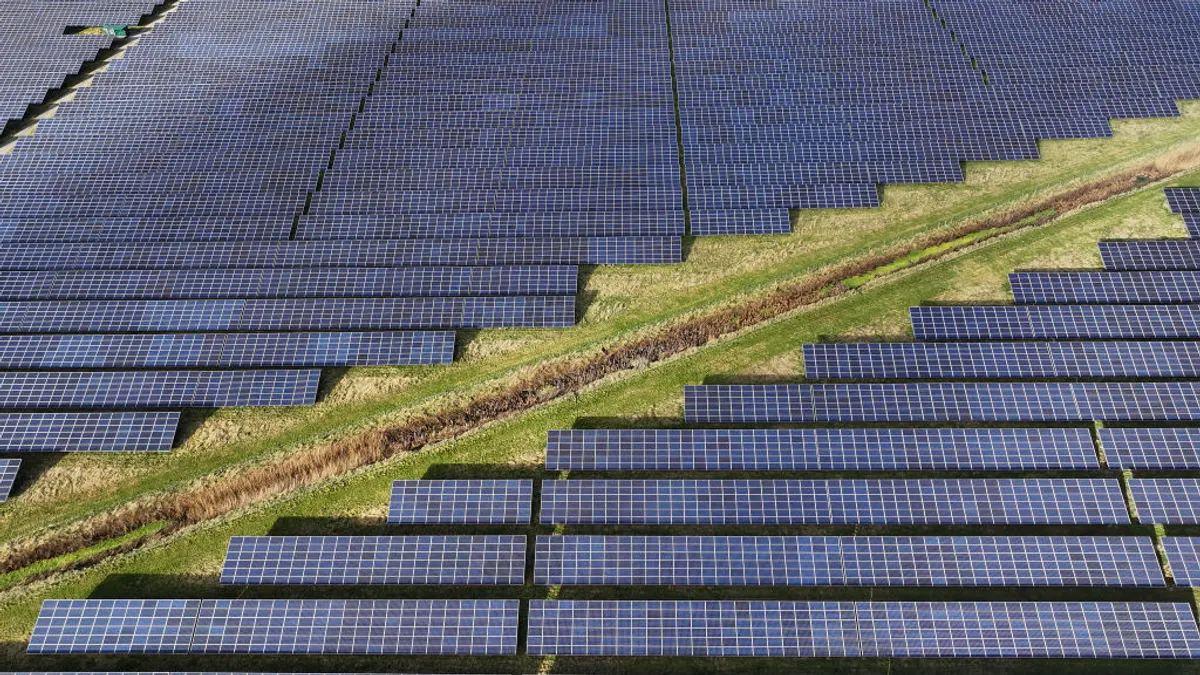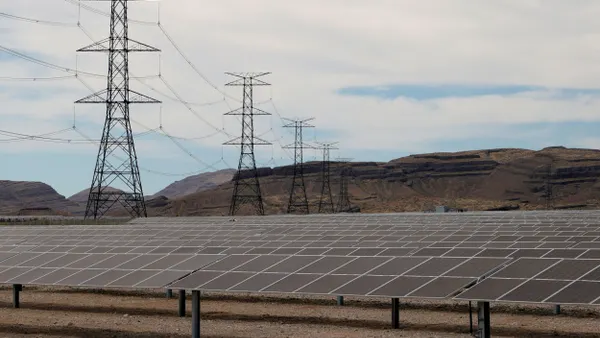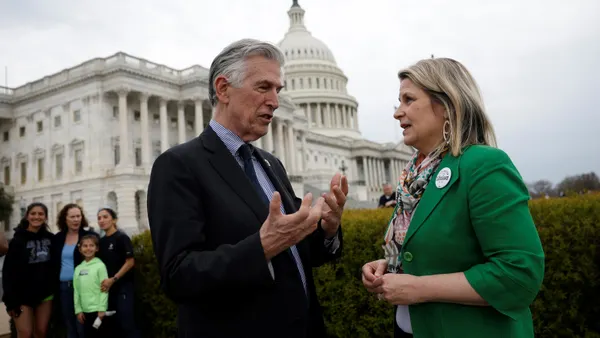Dive Brief:
-
President Donald Trump unveiled major changes to how his administration will implement a 50-year-old law on Thursday that will ease the energy industry's ability to secure environmental permits for major infrastructure projects.
-
The proposal would cut down federal permitting timelines under the National Environmental Policy Act (NEPA) and reduce the amount of agencies overseeing the permitting process, among other changes. "I believe [this plan] will be the most significant deregulatory proposal you ultimately implement," Department of the Interior Secretary David Bernhardt told the president after the announcement.
-
Energy groups from coal to wind praised the changes, noting the 1969 law has not been updated since 1978, and environmental reviews badly needed streamlining. But environmentalists fear the changes will omit critical emissions considerations and add ambiguity to a formerly well-defined process.
Dive Insight:
Trump's Thursday announcement focused largely on road and highway impacts, but industry groups and environmentalists note the implications for the energy sector are significant.
Utilities across the country "are investing more than $110 billion annually in smarter energy infrastructure," Quin Shea, Edison Electric Institute Vice President, Environment, Natural Resources, and Occupational Safety & Health said in an emailed statement. "It is critical that energy infrastructure siting and permitting processes be streamlined to ensure that we are able to deliver the clean energy future that our customers want and expect."
The Trump administration first directed the White House Council on Environmental Quality (CEQ) to begin overhauling NEPA in February 2018, under a wide-ranging infrastructure plan.
"This is a really, really big proposal" Bernhardt said. It "affects virtually every significant decision made by the federal government that affects the environment."
Trump said the change is part of his "campaign to slash job-killing regulations," while maintaining protections over the environment.
Climate change "is a very serious problem," he said. "I want clean air, I want clean water … But I don't want to close up our industry because someone said you have to go with wind, or someone said you have to go with something that doesn't have the capacity to do what we have to do."
Wind, gas and coal mining industries all support the White House's proposed changes. Approvals for pipeline and offshore wind permitting are two critical areas impacted by these changes that have seen significant delays under current NEPA rules.
Environmental reviews ordered under NEPA have delayed high-impact projects such as the Keystone XL Pipeline. And in August, the Bureau of Ocean Energy Management delayed Vineyard Wind's permitting analysis, which "will likely upend the supply chain, financing and construction timeline for the project," according to the pro-NEPA revision coalition Unlock American Investment.
"While America's wind energy industry supports the fundamental goals of NEPA to appropriately consider potential environmental and climate impacts, the NEPA process has not been revised in decades," said Amy Farrell, Senior Vice President of Government and Public Affairs for the American Wind Energy Association. "As a result, infrastructure projects, including land-based and offshore wind energy and transmission development, have encountered unreasonable and unnecessary costs and long project delays."
Natural gas groups noted the proposed changes are consistent with what they asked for in terms of greenhouse gas regulations and an overall streamlined process.
"This proposed rule will streamline, clarify and modernize the permitting and environmental review process and will help facilitate the environmentally-responsible construction of natural gas infrastructure," the American Gas Association said in a statement.
Nuclear and solar groups did not immediately have a reaction to how the proposed changes may impact those sectors.
But environmental advocates fear the proposed changes will lead to insufficient environmental impact challenges, undo years of progress on climate change, and at the end of the day only lengthen the permitting process through court battles.
"Everyone involved in energy infrastructure projects, particularly gas pipelines, [has] been trying to needle out how we handle this 'X factor' that we all know exists in climate change," Natural Resources Defense Council Attorney at the Sustainable Federal Energy Regulatory Commission project Gillian Giannetti told Utility Dive. "The courts had been working to put meat on the bones so FERC and everyone involved can understand what needs to be done. And these proposed regulations are clearly an attempt to upend all of that."
Of top concern is the elimination of words such as "direct," "indirect" and "cumulative" from regulatory language, all words that have "been in NEPA regulations since 1978 and do exactly what regulations are supposed to do — provide color, context and help to inform regulators how to implement statutes that are typically much more generalized in their description," said Giannetti.
Eliminating those words will allow agencies conducting environmental impact reviews to ignore the long-term climate impacts of pipelines and other major infrastructure projects. Those changes "would allow [an] agency to really zero in on this tunnel vision where they say, 'Well, you know, we have no authority to prevent the cataclysmic effects of climate change,'" Harvard Energy and Environmental Law Fellow Caitlin McCoy told Utility Dive.
There is also increased ambiguity of what exactly constitutes a federal review, noted Giannetti and McCoy. The proposal raises the question of whether a monetary threshold should be set for what constitutes federal involvement and therefore what triggers NEPA to apply.
"A lot is up in the air," said McCoy, which is likely to spur court battles. However, under the current proposal, any lawsuits or challenges raised against a permit, would not be able to reach a court until after an agency actually issues a permit or a decision is finalized by a regulator.
"That's a big change because it means that projects are going to be allowed to get further along," said McCoy. "They're going to be more developed and fully ready to break ground ... [before] challengers will be allowed to bring their challenges.
Correction: The law was last changed in 1978.














